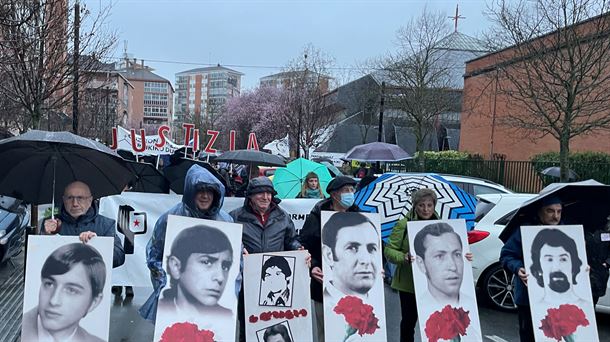According to the signed agreement, traffic competition will be protected as “a historic right of Navarre”. “This is a first step,” as explained by the President of the Government of Navarre, María Chivite, as the amendment will have to go through several stages before it comes into force.
The Government of Navarre and the Ministry of Territorial Policy have reached an agreement to reform the law regulating the Foral Regime of Navarre, so that traffic competition is protected as ‘a historic right of Navarre’.
The agreement, the first step to implement this reform, was announced after the first meeting of the Navarre-State Negotiating Committee for the Reform of the Lorafna, held on Tuesday at the Navarre Palace. The Navarra delegation is led by the First Vice President, Felix Tabernaand the State by the Minister of Territorial Policy and Democratic Memory, Angel Victor Torres.
This change is the route chosen by both governments to ease traffic after the Supreme Court ruling annulling the previously agreed royal decree by which Navarre assumed responsibility for traffic, which would be managed exclusively by the foral police.
The agreement reached amends section three of the article 49 which will declare that “Navarre, in the field of traffic, the movement of motor vehicles and road safety, by virtue of its regional regime and the provisions of this Organic Law, in addition to the powers it has had, is responsible for the ” implementation of state legislation, as well as traffic monitoring and control functions.”
Furthermore, a third paragraph is added to the article 51: “In matters of traffic, movement of motor vehicles and road safety, the powers of the provincial police shall be governed by the provisions of Article 49.”
“This is a first step”as explained by the President of the Government of Navarre, Maria Chivitefor the media, as the change must go through several stages before it comes into effect.
This Wednesday it will be submitted to the government session, then the Council of Navarre will have one month to prepare a report, it will be submitted again to the government session and then the Navarre parliament must approve the text. Chivite foresees that this could happen for the summer.
The Foral Parliament is the final step that the text will take in Navarre, as it will then go to the Cortes Generales, Congress and Senate. Both must approve it before Navarra can take on the competition. As the majority in the hands of the PP in the Senaterejected it, it would return to the Congress of Deputies for final approval.
Minister Víctor Torres has appealed to the “responsibility” from all groups and especially from the majority of the PP and the Senate, so that it will not veto the reform and send it back to Congress, since it is something “approved in the previous legislature”. “I appeal to that responsibility,” the minister repeated.
Chivite explained that when the PP “puts a brake on the wheels” he would not act “as he has done on other occasions.” “It would not be consistent if Aznar transferred traffic to Catalonia, it would not be consistent with the positions they have taken before,” he added.
Source: EITB
I am Ida Scott, a journalist and content author with a passion for uncovering the truth. I have been writing professionally for Today Times Live since 2020 and specialize in political news. My career began when I was just 17; I had already developed a knack for research and an eye for detail which made me stand out from my peers.



